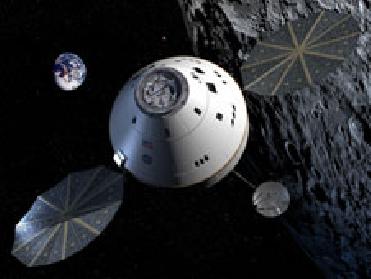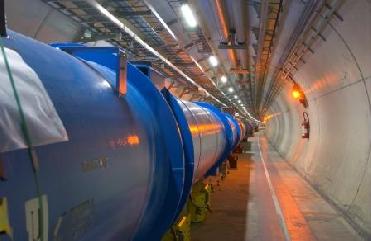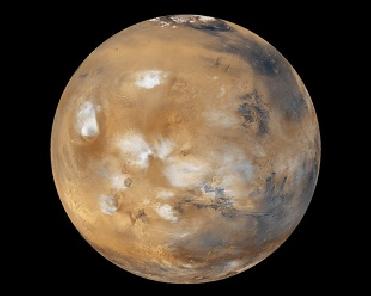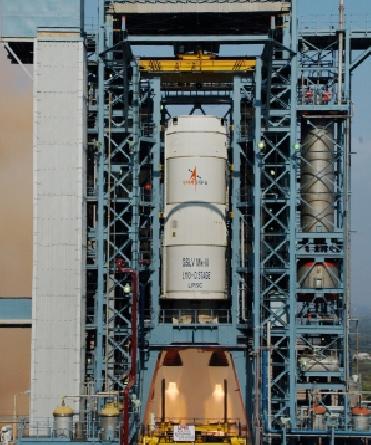
An artist's concept of NASA's Orion crew exploration vehicle in lunar orbit. Image Credit: NASA
HOUSTON: NASA has taken a major step toward building the next crew exploration vehicle by completing the Orion Project's preliminary design review, or PDR. Orion is being designed to carry astronauts to the International Space Station and other destinations.
The preliminary design review is one of a series of checkpoints that occurs in the design life cycle of a complex engineering project before hardware manufacturing can begin. As the review process progresses, details of the vehicle's design are assessed to ensure the overall system is safe and reliable for flight and meets all NASA mission requirements, the US space agency said in a press statement.
The Orion features a capsule-shaped crew module designed for maximum crew operability and safety, a service module housing utility systems and propulsion components and a launch abort system for improved astronaut safety. The preliminary design review evaluated the vehicle's capability, as currently designed, to support three types of missions: flights to the International Space Station, weeklong missions to the moon and missions to the moon for up to 210 days.
"This is the successful culmination of all of the design trade studies and activities to date," said Mark Geyer, manager of the Orion Project Office at NASA's Johnson Space Center in Houston. "As a project, a program and an agency, we are reviewing the design maturity, strategy and plans for NASA's next human spacecraft and agreeing that this is the architecture we are going to build."
Teams representing each subsystem of Orion conducted focused reviews from February to July before proceeding to the overall vehicle-level review. The preliminary design review lasted about two months and included reviewers from all 10 NASA field centers to evaluate the hundreds of design products delivered by the Lockheed Martin-led industry partnership.
"The Orion vehicle design is much more mature than you might see on many programs at the PDR checkpoint because we have worked so closely with our NASA counterparts every step of the way during the vehicle design phase," said Cleon Lacefield, vice president and Orion project manager at Lockheed Martin in Denver. "To date we have completed more than 300 technical reviews, 100 peer reviews and 18 subsystem design reviews."
The PDR process culminated with a review board that concluded Aug. 31 and established the basis for proceeding to the critical design phase of Orion. Participants identified technical and management challenges and addressed ways to reduce potential risks as the project goes forward.
NASA will continue the review process with an independent agency-level evaluation to validate the PDR results and gain formal approval to transition the project into the next life cycle phase.













The Indian Air Force, in its flight trials evaluation report submitted before the Defence Ministry l..
view articleAn insight into the Medium Multi-Role Combat Aircraft competition...
view articleSky enthusiasts can now spot the International Space Station (ISS) commanded by Indian-American astr..
view article